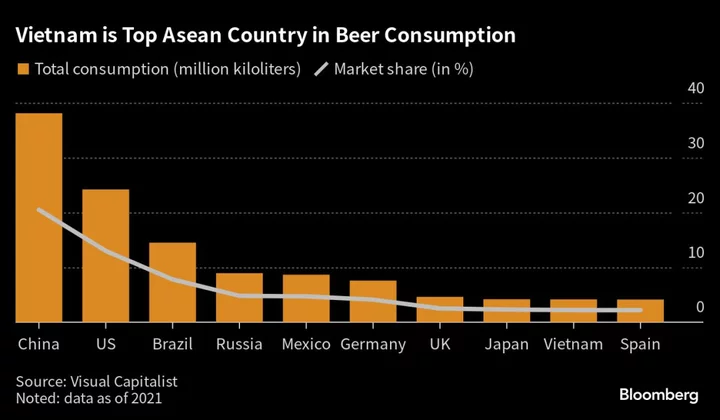Resumes can be a simple yet highly complex tool to understand. Conflicting advice on how to craft a successful resume is readily available to job seekers: how many pages, what kind of keywords to include and how many, what font to use, and more well-meaning but often misguided guidance on other details. As important as a resume is, it’s astounding that we don’t have resume writing built into school curricula.
As a recruiter and resume writer, I've seen more than a thousand resumes in my seven years of experience. My company, JupiterHR, specializes in helping people get their dream jobs, and many of our clients have gotten into some of tech's most prominent companies, including Google and Meta, using our resumes. We approach each resume as a device that accurately tells the stories of their owners while also being optimized to be easy for the reader (recruiter, hiring manager, referral, or other busy person) to understand what makes you such a valuable hire.
SEE ALSO: Jermaine L. Murray is 'The Jobfather' growing diversity in techThere are many mysteries surrounding how people can write an effective resume, but keeping in mind a few strategies will help you break through the noise to sell your skill set successfully.
Keep your resume short.
Simply put, recruiters skim resumes. Due to the large amount they receive, in addition to the tight deadlines many are faced with, it's only natural they would speed-read through resumes, shortlisting the ones that catch their eye. Because of this pace, a resume's first half is considered the most valuable real estate. Resume writers, borrowing a term from the newspaper industry, sometimes refer to this as "above the fold" — if you were to fold a resume in half, everything above the fold would be what is retained on a recruiter's initial read.
Experience matters less and less below the fold, especially if it's older than three years. Many people will tell you different stories and theories on why a resume should be a certain length, but, speaking from the recruiter's point of view, you'll make more of an impact by focusing on the most relevant and recent experience.
Understand the difference between responsibility and achievement.
The first error people make when writing out their resume is not understanding that how you present your experience can make a fundamental difference in how it's perceived. The goal of your resume is to clearly define your impact on your work environment. An effective resume will have a clear but subtle before-and-after effect, where the reader can quantify your actions within the workplace and how the company benefited from your impact.
An example of the difference in effectiveness would be a salesperson writing their experience as, "Interacted with customers and informed them on latest products and services," versus, "Interacted with 500 customers daily to sell over $300,000 in company's latest product and services." With the second example, a clear difference is made, and we can easily understand this person's impact.
Identify and use your Key Performance Indicators.
It can be challenging to figure out how to incorporate numbers in your resume without knowing where to look. One of the best ways to quantify your work is with your Key Performance Indicators (KPIs). KPIs are the numbers and statistics managers use to assess your performance at work. Think of what they would use to grade you during an annual review.
Metrics that are usually considered and used in measuring KPIs include:
Sales Numbers
Customer Service Scores
Customer Retention
Growth in Revenue
Operational Cash Flow
Monthly Website Traffic
Number of Qualified Leads
Employee Satisfaction Rating (For managers and people leaders)
These KPIs are helpful in contextualizing your impact with a numerical value attached. Alternatively, you can and should create your own KPIs around activities that you deem relevant to your resume and career.
SEE ALSO: 'Ghost jobs' are increasingly wasting job-seekers' timeHighlight and incorporate your keywords.
Reading the job description and understanding the skills a posting asks for will give you a solid idea of the most relevant keywords to include on your resume. However, it's not enough to simply put your keywords on your resume; the best way to utilize keywords is to incorporate them in your resume's achievement statements for maximum impact. Not only will this help your resume stand out, but it'll also help position you as an expert who has succeeded in using the skills this posting is looking for — a perfect recipe for making yourself an attractive candidate.
Keep your narrative in mind.
A resume is a storytelling device that helps summarize what you've accomplished in your career. A resume can stand out even more if a consistent theme is shown throughout the resume in the form of skills, achievements, and KPIs. Keeping this narrative at the forefront of your mind will allow you to identify what works for your story correctly.
Are you someone who excels at communication with customers? Focus on keywords and skills that show off your customer service skills to reflect that best. Branding yourself as a specialist allows you to appear as a master or expert at a specific job function. Many employers like having specialists on their teams because they are uniquely equipped to solve particular problems. It's an incredible value add.
Are you extremely good at saving their employer money? Highlight achievements that show what your impact looked like compared to previous years. As I often share with clients, "Specialists get paid, generalists get worked."









